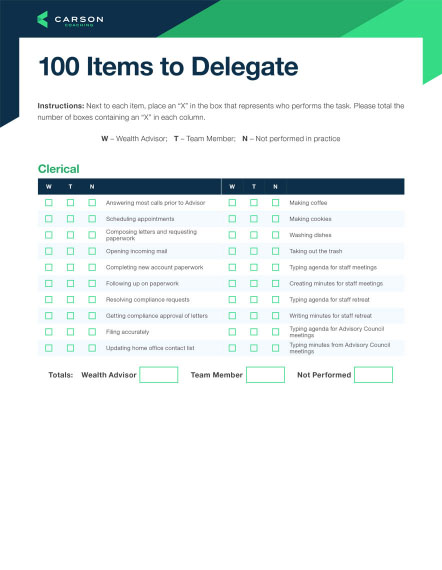Years ago, I had an epiphany that some of you may consider a “duh” or “of course” moment: There are a lot of people in this world who didn’t have the same number of caring, involved adults – like parents, teachers, coaches and extended family – in their lives as kids as I did.
And what if that makes a huge difference in how a kid’s life ultimately turns out? (Spoiler alert: It does.)
In that moment, I decided to become part of the “number of caring adults” for at least one child and signed up as a volunteer for a national youth mentoring program.
When I was growing up (and, sadly, for some years as a young adult), I didn’t truly understand all of the opportunities and advantages I had in life. Sure, my parents taught us that there were less fortunate people in the world and we should be grateful for what we have. But did I truly understand everything I had that others didn’t?
Do I now? Do any of us?
Probably not. In my own life and through regular conversations with business leaders in the financial services industry, I’m constantly reminded of how we can be oblivious to the blessings, opportunities and advantages we have that others don’t. Which makes me think: What a great opportunity we have to both be more thoughtful about our gratitude and improve equality and inclusivity in our industry!
A 4-Step Gratitude Exercise
What would change in our industry if business owners and leaders started getting really granular about what we are grateful for, thought about what it would mean if we didn’t have those things and adapted our company policies and business practices based on those new insights?
Read more: When and Why You Should Reevaluate Your Business Relationships
I’m calling my new and improved gratitude exercise “Gratitude – Impact – Flip – Adapt.” (And no, the name probably won’t win any awards for catchiness; I’m OK with that.) Here’s how it works:
Step 1: Gratitude. Start with a blank piece of paper and make three columns. Title the first column “Gratitude.” Every day, write down one thing you are grateful for – and it has to be something new. No repeats. You could also make one big list during a personal retreat or reflective time if that better suits you.
Step 2: Impact. Title the second column “Impact.” In this column, brainstorm how each thing you are grateful for impacts your business and/or career in a positive way. Some things might take more thought or research than others. Example: “I’m grateful for having the opportunity to play basketball every Thursday night. It allows me to clear my head and get exercise, both of which allow me to focus and perform better at work.”
Step 3: Flip. At the end of every week, review your list and title the third column “Flip.” Imagine you didn’t have this thing/person/experience/opportunity/advantage that you are grateful for. What would that be like? How might that negatively impact your business or career?
Here’s where it might get difficult. Your initial reaction might be something like, “It wouldn’t! I would just (go back to school/find a new job/ask family for help/etc.)” – but, AHA! That reaction often means there is something deeper that you should be grateful for! What if you couldn’t afford school, had someone in your family who needed a certain medical insurance or didn’t have family who could help?
If you’re struggling here, use our old friend Google and/or seek out a friend, family member or colleague who has a different perspective, and ask – with the intent to learn and understand, not to defend yourself or prove a point – how your career might be different if you didn’t have this advantage.
Step 4: Adapt. Using your new insights about how a lack of the things you are grateful for would negatively impact your career and overall success, how can you change existing policies or practices OR create new ones that would help others who didn’t/don’t have those things?
The Four Steps in Action
Here’s a simple example of what this exercise could look like: The partners at a firm I used to work with were all men who were married and made a good income. This allowed one of two things for each of them: Either their spouses could be stay-at-home parents with their kids, or they could hire a full-time nanny. If you asked them about it, I know they would all tell you they were grateful for that.
But on the flip side, they also had what is sometimes described as a “mental blind spot”: Because they didn’t have to worry about childcare and school schedules, they often scheduled meetings with early start times or evening social hours. For the two single parents who weren’t partners (and thus didn’t have the same income level) on the leadership team, that was tough, and their inability to attend every early meeting or evening social hour was interpreted by the partners as a “lack of commitment,” which negatively affected their ability to be a partner in the future.
Read more: The Advisor-CEO’s Ultimate Guide to Managing People
If one of the partners were using the “Gratitude – Impact – Flip – Adjust” exercise, they would have started with Gratitude – being grateful for their income and ability to afford full-time childcare, or having a spouse who had the ability and desire to be a stay-at-home parent.
Next, they would reflect on the Impact and note that they didn’t have to worry about getting the kids off to school, what to do during the summer and how to find childcare if school is canceled due to weather (or something like COVID-19).
Then, they would Flip their situation – they would note that the early meetings, evening social hours and lack of flexibility to work remotely were real barriers for people who did not have a stay-at-home spouse or other full-time childcare solution.
Finally, they would Adapt the business policies and practices to reduce or eliminate meetings and gatherings during early mornings, evenings or school breaks. They would also advocate to help the other partners understand that the inability to make these meetings didn’t signal a “lack of commitment,” and institute a flexible/remote working policy.
Questions to Get You Started
Having trouble finding things outside of the obvious to be grateful for? Here are some reflection questions to get you started:
- How did you enter the financial services industry?
- Who helped you in your early career?
- What was different about the industry in your early career from what you see today, and how did those things help you succeed?
- What people, support systems, businesses, laws or policies, technologies, transportation systems, etc., allow you to go to work and earn an income every day – including those that allow you to work without worrying about the safety of your kids, pets, home or yourself?
- How much has the COVID-19 pandemic affected your daily life or your ability to pay your bills or purchase other basic necessities and “luxuries?”
- When you need to take time away from work, whether because of vacation, a religious holiday, personal illness, a family member’s illness, lack of childcare, a death in the family or other reasons, how does that affect your income?
- When you have a challenging situation in your business, who do you turn to for advice and counsel?
- How much do you feel like you are able to be your authentic self at work?
Creating a list of things we are grateful for is a pretty standard exercise, and it can certainly help us be happier individuals. But the real power of gratitude is when we use it to create ripples beyond ourselves. Gratitude – Impact – Flip – Adjust.
Just think about the transformation we would see in our industry if every business leader went through this expanded gratitude exercise on a regular basis.


